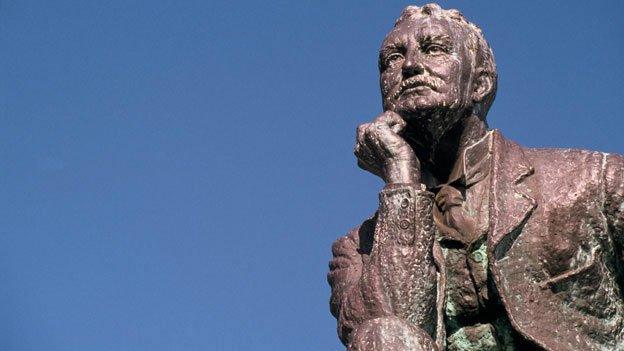Luther Blissett: Watford legend opposes renaming colonial roads
- Published
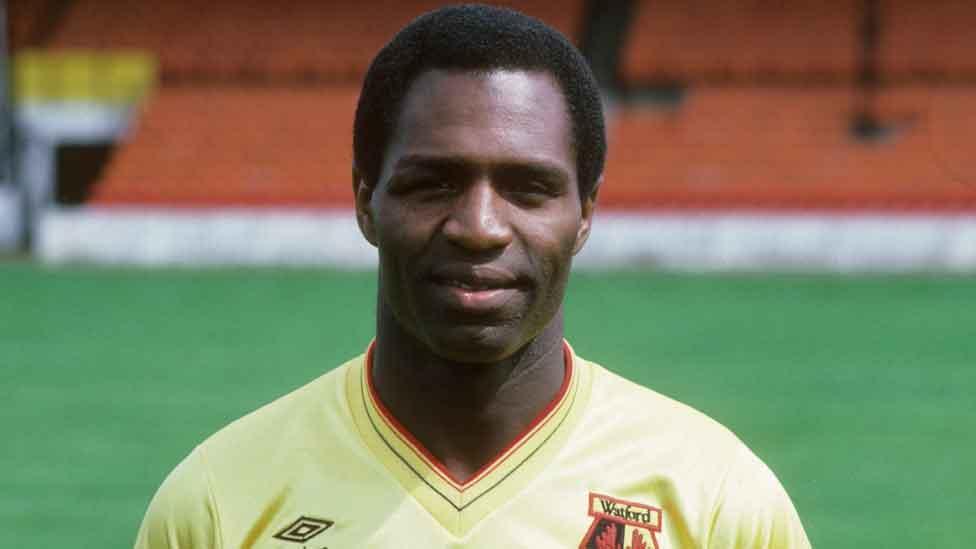
Luther Blissett scored 186 goals during three playing spells at Watford
Watford legend Luther Blissett has said he disagrees with proposals to rename four town streets which have links to Britain's colonial past.
The borough council has agreed to look at renaming Rhodes Way, Clive Way, Colonial Way and Imperial Way in order to "reflect forward thinking".
The review comes in the wake of anti-racism protests across the UK.
But Blissett said better education about the past was more important than "wallpapering over it".
Black Lives Matter protests have been held across the UK after the death in police custody of George Floyd in the United States in May.
Oriel College in Oxford announced it planned to take down the statue of 19th Century colonialist Cecil Rhodes, while a statue of slave trader Edward Colston was toppled and thrown into Bristol's harbour.
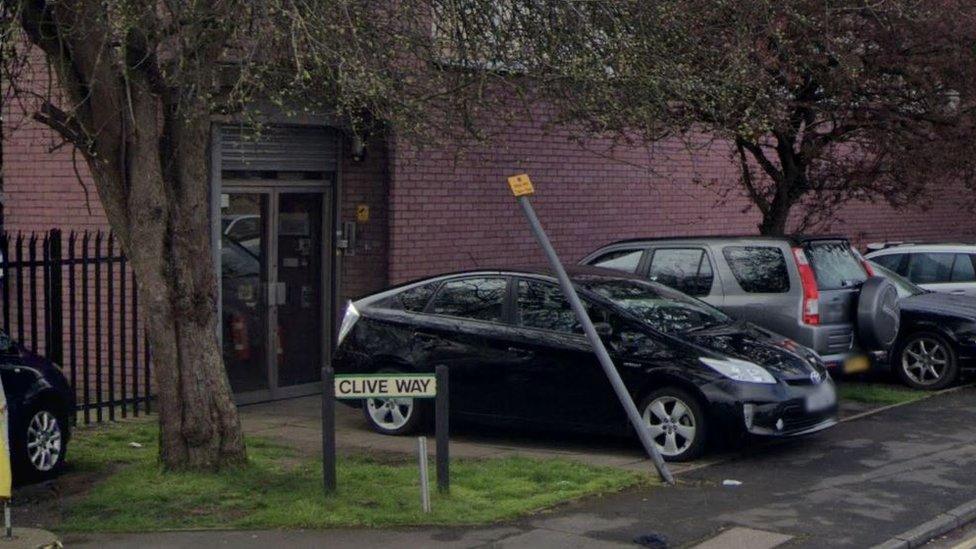
One road is named after Robert Clive, who helped establish the British Empire in India
Watford Labour councillor Asif Khan proposed that roads "named after people who were involved in the slave trade, colonisation and oppression" were changed.
He said street names, as well as any buildings and monuments, should "reflect our town's rich, deep cultural history rather than any negative connotations".
"Watford has been enriched by its ethnic minority citizens that have come from across the globe or born in the UK," Mr Khan said.
"The likes of Luther Blissett, Anthony Joshua and John Barnes are just some who have made contributions to our town, but there are many more."
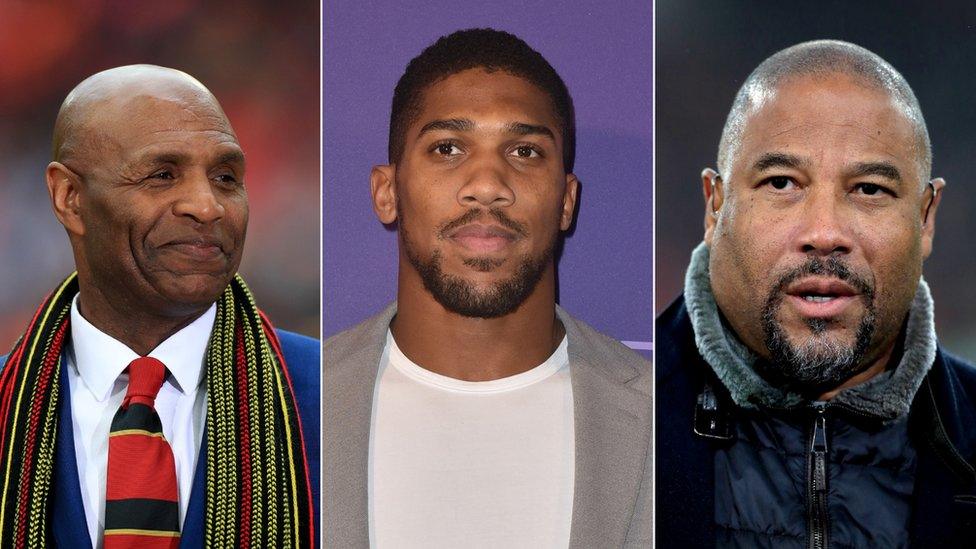
Watford council wants to rename streets after famous sons Luther Blissett, Anthony Joshua and John Barnes
Blissett, who scored 186 goals in 503 games for Watford, said having a street named after him in a new development would be "rather nice" but he "objects to" the roads being renamed.
"I find it is wallpapering over the past," he said.
"I think it's important that there is a real understanding of where those names have come from.
"The important thing is what we now, in this present time, can do about education so that people understand [their] past and understand hopefully what we can do moving forward."

Find BBC News: East of England on Facebook, external, Instagram, external and Twitter, external. If you have a story suggestion email eastofenglandnews@bbc.co.uk, external
- Published15 July 2020
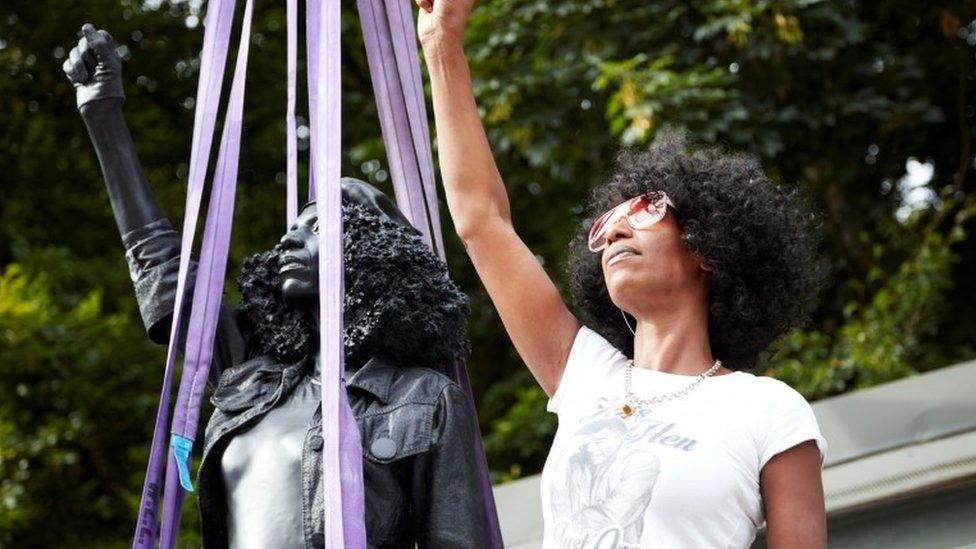
- Published11 June 2020
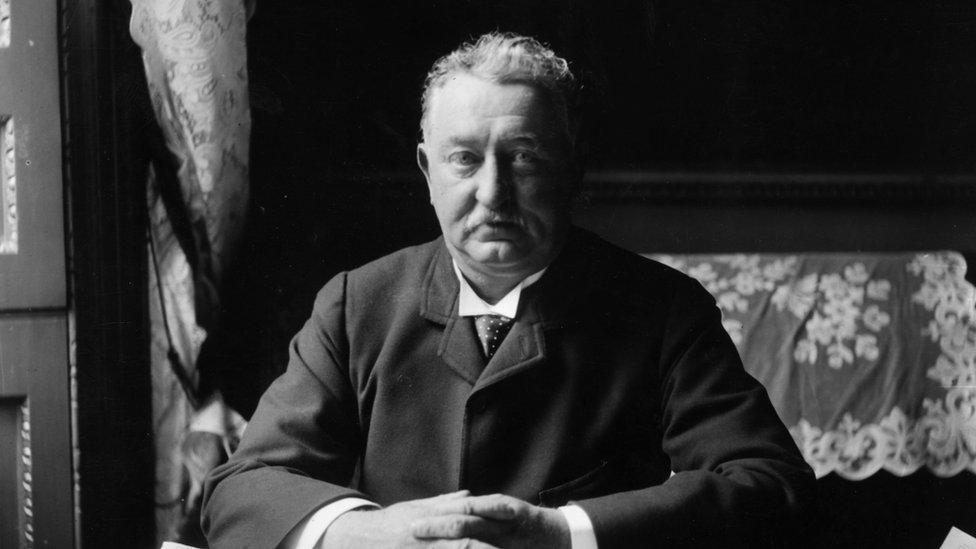
- Published1 April 2015
